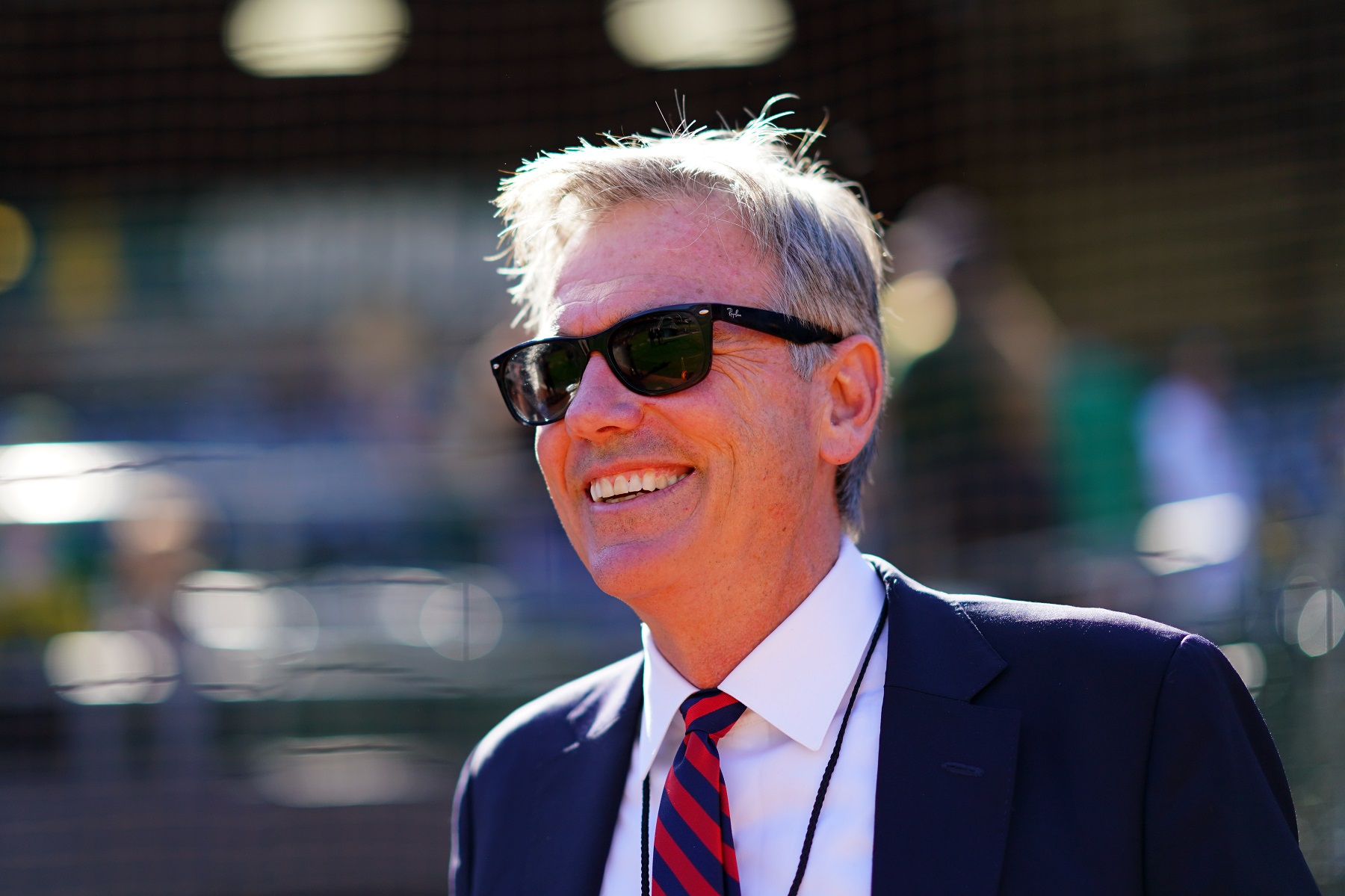MLB
‘Moneyball’ GM Billy Beane Is Finally Ready To Deal With the Boston Red Sox

It’s been nearly two decades since the Boston Red Sox tried to hire Billy Beane, the general manager of the Oakland A’s whose analytics-driven approach – “Moneyball” — changed the way teams in every sport have built their rosters in order to compete.
John Henry and Tom Werner bought the Red Sox in 2002 and wanted Beane to come work for them. The parties are finally set to collaborate, but in a way that would have never been imagined in 2002.
Billy Beane has his sights on the Boston Red Sox
RELATED: The Los Angeles Angels and Boston Red Sox Paid a Lot and Have Nothing To Show for It
Michael Lewis’ 2003 book “Moneyball: The Art of Winning an Unfair Game” dug into how general manager Billy Beane built the 2002 Oakland A’s into an improbable contender despite financial constraints facing a small-market team. Most sports fans became familiar with the story through the 2011 movie Moneyball, starring Brad Pitt as Beane.
The movie ends with John Henry’s unsuccessful attempt to hire Beane to run the Boston Red Sox. However, that turns out not to be the end of the story. Beane, 58, is on the verge of leaving the A’s to do business with the Red Sox. But rather than trading players, he’ll be trading stock.
According to the Wall Street Journal, Beane intends to leave day-to-day baseball operations to concentrate on his job as co-chairman of RedBall Acquisition Corp. if a deal with Fenway Sports Group goes through. RedBall was formed earlier this year as a Special Purpose Acquisition Company (SPAC), which raises money from investors and then seeks out businesses to buy. It enables a private company to go public without having to do its own Initial Public Offering.
RedBall Acquisition Corp. did its IPO earlier this year, raising an estimated $575 million by selling its stock at $10 a share.
John Henry’s sports empire looks to expand
RELATED: Tom Brady’s Twin is Married to a $52 Million Former Red Sox Star
The Boston Red Sox are one piece of Fenway Sports Group, owned by John Henry and Tom Werner. Fenway Sports Group also owns the Liverpool soccer club in the English Premier League, half of Roush Fenway Racing in NASCAR, and 80% of the New England Sports Network. Forbes estimated in December 2019 that the empire was worth $6.6 billion.
Henry and Werner appear ready to relinquish some of their stake, less than 25%, according to the Wall Street Journal, to Beane’s RedBall Acquisition Corp. The arrangement would require Beane to leave the Oakland A’s, where he currently serves as the executive vice president of baseball operations, though he would be unlikely to take a direct role in running the Boston Red Sox.
His more likely role would be to help steer Fenway Sports Group into additional acquisitions, likely including European soccer clubs.
Technically, you’ll be able to buy stock in the Boston Red Sox
RELATED: Red Sox Hall of Famer Says Mookie Betts Never Wanted to Leave Boston
If Billy Beane’s RedBall Acquisition Corp. completes its deal with John Henry to buy a piece of Fenway Sports Group, then the company will have a stake in the Boston Red Sox, the Liverpool soccer club, and Fenway’s other assets. Since RedBall is a publicly traded company, the average baseball fan wanting to say that they own a piece of the MLB team can buy shares of RedBall.
Does that mean that fans will have a say in running the Red Sox? Not a chance. Unless they have $300 million laying around, they would be a minority owner of a company holding a minority stake in the company that owns the Red Sox. So even the $300 million wouldn’t give them much more than a token seat at the table.
Small investors would have to be satisfied with the possibility of making money if the Red Sox and Liverpool do well, increasing the value of the stock shares. The stock began trading at $10 a share in August and has climbed as high as $10.84 recently.











